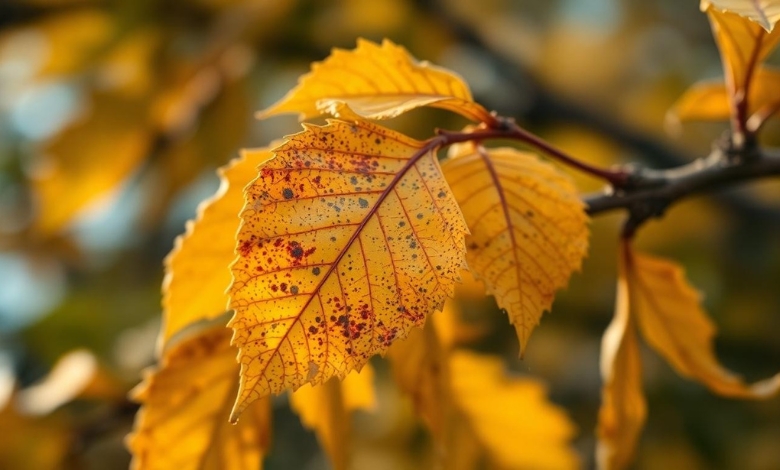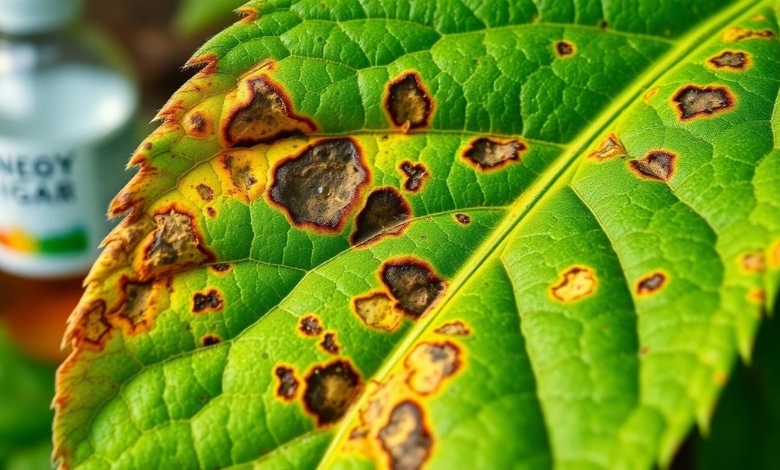Discover what strength of vinegar kills a mulberry tree and learn natural methods to remove unwanted trees effectively.
Have you ever spotted a mulberry tree growing stubbornly in your yard and thought about how to deal with it by using eco-friendly practices?
Believe me—you’re not alone in feeling overwhelmed.
I’ve faced that challenge too, glancing at that tree as if it’s teasing my gardening efforts.
But here’s the bright side: you can tackle it without resorting to toxic solutions.
In this guide, I’m going to show you how vinegar can actually be a great and natural way to get rid of that mulberry tree.
Let’s jump right in.
Article Breakdown
Why Vinegar Works for Killing Trees

So, why use vinegar?
You might think of it as that strong-smelling stuff you clean with or put on your salads, right?
But it’s actually a great way to tackle mulberry trees because of its acidity.
Vinegar breaks down plant cells, which dries them out and eventually kills them.
Regular vinegar works for smaller plants (it’s usually about 5-7% acetic acid), but if you’re dealing with a tough mulberry tree, you’ll need something stronger.
That’s where horticultural vinegar comes in; it has 20-30% acetic acid.
It’s like getting serious in the fight against those stubborn mulberries.
How I Transformed Skepticism into Success
Let me pause here for a moment and share my story.
A couple of summers ago, I had a mulberry tree that refused to back down.
I’d tried everything: trimming, cutting, and even reasoning with it (I wish I were kidding).
It wasn’t until I read about using vinegar that I found a solution that was both eco-friendly and effective.
The journey wasn’t without its trials, but I’m here to save you time and effort by giving you a clear, tested plan.
What Strength of Vinegar Do You Need?
Now, let’s dive into the heart of the issue—where the real challenges lie.
If you’re looking to kill a mulberry tree, household vinegar won’t cut it (pun intended).
You should use horticultural vinegar that contains a minimum of 20% acetic acid.
This concentration is strong enough to penetrate the hardy bark and roots of a mulberry tree and dry it out from the inside.
Caution: This stuff is potent.
If it can take down a tree, imagine what it can do to your skin or eyes.
Always wear gloves and goggles when handling high-strength vinegar.
Trust me, the sting isn’t worth it.
Step-by-Step Guide to Using Vinegar to Kill a Mulberry Tree
Now, let’s get practical.
Here’s a step-by-step guide that outlines exactly what you need to do to ensure the vinegar gets the job done:
1. Gather Your Supplies
- Horticultural vinegar (20-30% acetic acid)
- Protective gear: gloves, goggles, and long-sleeved clothing
- A spray bottle or garden sprayer
- A saw or axe (optional but helpful)
Tip: If you can’t find horticultural vinegar at your local gardening store, it’s easily available online. Just make sure it’s labeled as 20% or higher.
2. Choose the Right Time
Timing is everything.
For the best results, pick a sunny, dry day.
The heat accelerates the drying effect of the vinegar, helping it penetrate deeper into the tree.
Think of it as using the power of the sun as an ally in your mission.
3. Prepare the Tree
Before applying vinegar, cut the tree back to expose more of its inner tissue.
This step isn’t mandatory, but it speeds up the process by allowing the vinegar to reach the more vulnerable parts of the tree.
When I first tried this, I was skeptical, but within days, I saw results.
4. Apply the Vinegar
Load your garden sprayer with vinegar and apply it liberally to the exposed parts of the tree—especially the stump, roots, and any exposed wood.
Don’t skimp; let the vinegar soak in deeply.
Tip: I once made the mistake of applying too lightly, thinking less would be more.
Learn from me—more is definitely more when it comes to this method.
5. Reapply as Needed
Check on your tree after a week.
If it’s not showing signs of browning or wilting, reapply the vinegar.
This process might take a few weeks, especially for larger trees.
Patience is key, but the results will come.
Practical Dosage and Safety Information
Let’s talk safety for a second. Horticultural vinegar is strong—much stronger than the stuff you use in your kitchen.
Keep the following points in mind:
- Wear gloves and eye protection: You do not want this concentration of vinegar getting on your skin or in your eyes.
- Avoid contact with nearby plants: Horticultural vinegar doesn’t discriminate. If it hits your flowers or grass, they’re likely to suffer the same fate as your mulberry tree. Use cardboard or a plastic barrier to protect nearby vegetation.
Pro Tips for Maximum Effectiveness
Want to ensure you’re making the most out of your vinegar strategy? Here are some pro tips:
- Add Salt for Extra Power: Mixing a small amount of salt with your vinegar solution can enhance its effectiveness. Just be cautious, as salt can leach into the soil and affect future plant growth.
- Apply on Hot Days: Vinegar works best when it’s dry and sunny. The heat helps the liquid evaporate more slowly, giving it more time to work its magic.
- Use a Funnel for Precision: If you’re applying vinegar directly to the roots, a funnel can help you pour it exactly where it’s needed, minimizing waste and protecting nearby plants.
How I Discovered the Unexpected
One thing I didn’t expect when I started using vinegar was how it also kept unwanted critters at bay.
On my second attempt, I noticed that the area where I applied the vinegar stayed clear of ants and other pests.
It was an unexpected win that made me feel like I’d discovered some hidden gardening hack.
Frequently Asked Questions (FAQs)
How long does it take for the tree to die?
Depending on the size of your tree, you might start seeing results within a week, but complete death can take a month or more. Persistence is key.
Is vinegar harmful to other plants?
Yes, especially at high concentrations. Be careful where you spray, and cover any plants you want to keep safe.
Can I use regular household vinegar?
Not for larger trees. Household vinegar won’t have the strength needed to kill a tree as tough as a mulberry.
Key Lessons
- Taking down a mulberry tree with vinegar is more than just an eco-friendly alternative—it’s a satisfying, empowering experience that puts you back in control of your yard.
- When I finally won my battle, I felt more confident in my ability to manage my garden without resorting to harsh chemicals.
- And now, you’re armed with the knowledge and practical tips to do the same.
- Give it a try, and don’t be afraid to adjust the method to fit your situation.
- Your garden deserves a little peace, and you deserve the satisfaction of knowing you did it the natural way.
Additional Resources:
- How to Kill a Tree: 10 Tips to Get Rid of Your Tree for Good – Discover effective methods and tips for safely removing unwanted trees from your property.
- Benefits Of Vinegar: How To Use Vinegar In The Garden – Learn how vinegar can be a powerful ally in your gardening toolkit for pest control and plant care.
- Physiology of Acetic Acid Bacteria and Their Role in Vinegar and Fermented Beverages – Explore the science behind acetic acid bacteria and their important contributions to vinegar production and fermentation processes.



